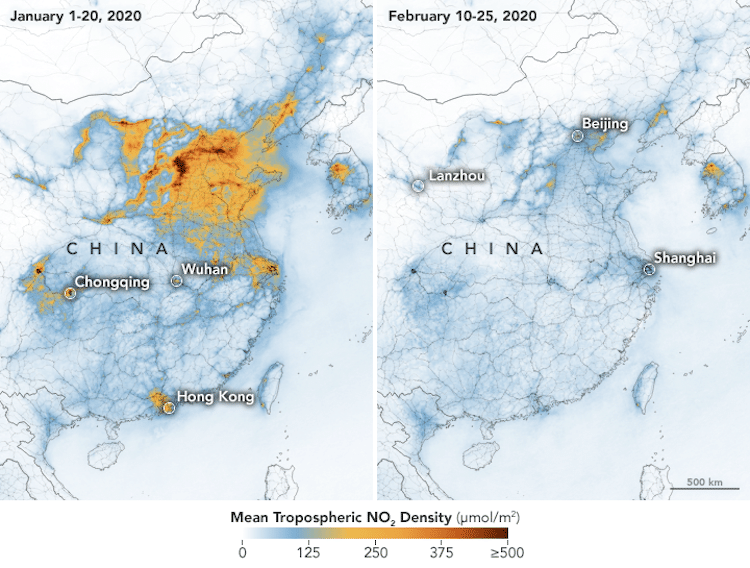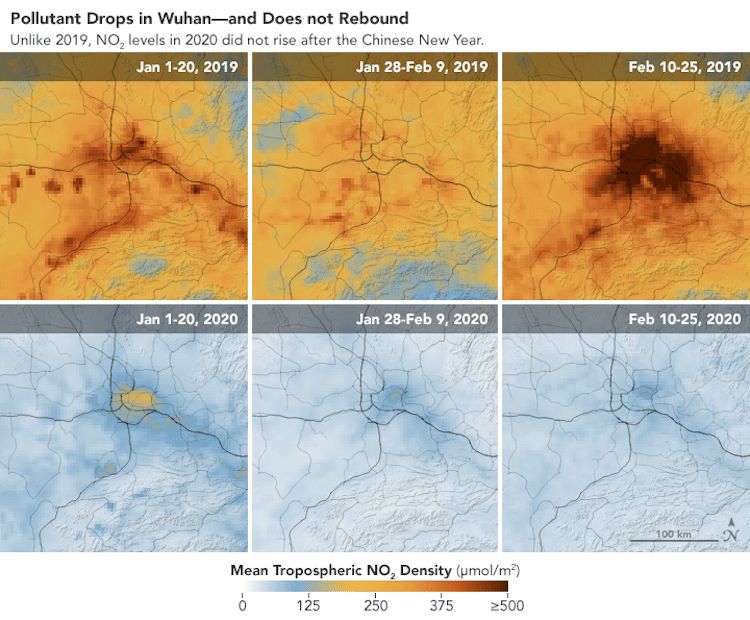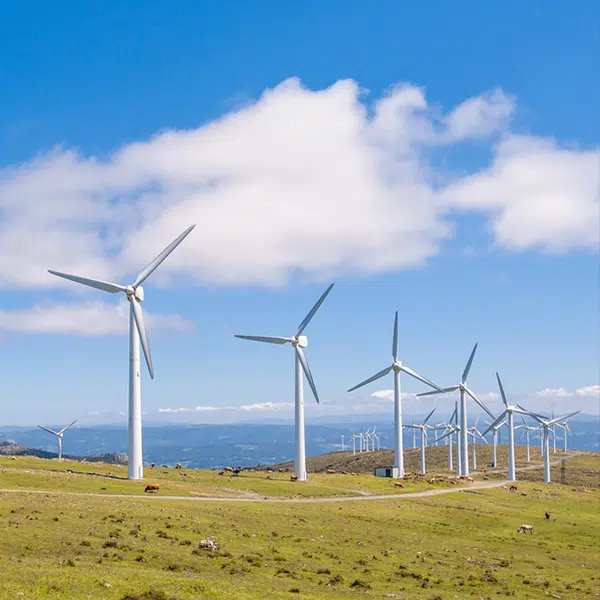
Photo: NASA Earth Observatory, Joshua Stevens, using modified Copernicus Sentinel 5P data processed by the European Space Agency
The coronavirus pandemic has quickly devastated the entire world, but there's one exception to its dire effects—air pollution in the environment is down. As people are being forced indoors and life grinds to a halt due to quarantines, something incredible is happening. Not only is air pollution diminishing, but overused waterways are seeing a regrowth of marine life. From satellite imagery to first-hand accounts, there's evidence piling up that nature might score a victory thanks to COVID-19.
This trend first appeared in early March, when NASA released satellite images of China taken from early January to late February when the coronavirus was at its peak. There's a clear, dramatic drop in nitrogen dioxide levels during the national quarantine. Though there was a gradual drop in NO2 during the 2008 recession, this quick decline is quite unusual. “This is the first time I have seen such a dramatic drop-off over such a wide area for a specific event,” said Fei Liu, an air quality researcher at NASA’s Goddard Space Flight Center.
While air pollution generally diminishes around the Chinese New Year, as businesses close for the holidays, the trend this year is a bit different. The pollution levels are even lower and the decline has lasted for longer, giving support to the theory that the quarantines are responsible for the dramatic increase in air quality.
Not limited to China, Italy is also seeing better air quality thanks to the strict limitations on movement and business closures that were enacted nationally on March 11. Satellite imagery by the European Space Agency shows a clear drop in nitrogen dioxide from early January, particularly in the north where restrictions began even earlier. Fewer cars on the streets and factory closures have created an opportunity for the air quality to rebound.
I canali di Venezia senza traffico di barche!!
Il risultato? Acqua limpidissima
Ph. Venice pictures pic.twitter.com/KGsKWNd56u— Albert Folaz (@FolinAlberto) March 11, 2020
Evidence of coronavirus' environmental impact can also be seen on the ground. In Venice—a city that would typically be bustling with tourists in this period—the canals are regaining clarity. Without the traffic of gondolas, water taxis, cruise ships, and private boats to stir up the waters, they're being allowed to settle for the first time in recent memory. The waters have become clear once again and there are even reports of fish making their reappearance in the canals.
“Even the streams around Piazza San Marco, usually particularly cloudy, due to the traffic of boats, taxis, as well as gondolas, have regained their clarity,” reports local newspaper La Nuova di Venezia e Mestre. “And the lagoon ecosystem [is] showing evident signs of regeneration.”
Though positive, these environmental effects certainly don't take away from the tragedy of the coronavirus, which is impacting lives around the world. But, in this difficult time, it's perhaps a silver lining to the sacrifices everyone is making.
China's air quality rebounded and stayed steady even after the Chinese New Year, particularly in Wuhan.

Photo: NASA Earth Observatory, Joshua Stevens, using modified Copernicus Sentinel 5P data processed by the European Space Agency
Pollution has also dropped in Italy as the country went into lockdown for the coronavirus.
h/t: [Post Magazine, The Guardian]
Related Articles:
What the 1918 Spanish Flu Pandemic Can Teach Us About Coronavirus
Self-Isolated School Kids in Japan Celebrate Their Graduation Online in Minecraft
Photographer Immortalizes Shanghai’s Empty Streets During the Coronavirus
China Is Banning Plastic Bags in All Its Major Cities by the End of 2020






















































































